
Agenda | Sep 14,2024
Nov 20 , 2021
By Christian Tesfaye
Putting Ethiopia’s civil war in context, some fundamental questions need to be asked. It is never a good idea to generalise and we will never find a single, definitive and quantifiable explanation, let alone agree on it. But ask we should.
What is the cause of the war? Ethnic rivalry? Failure of political leadership? Historical grievances? Lack of strong democratic institutions?
Each one of these will have its supporters. The Economist once put forward that sudden regime changes make countries more prone to war, as is the case for Ethiopia in the aftermath of 1974 and recently. The publication's 2018 article, headlined, “Which countries are more likely to fight wars?” which analyses all conflicts since 1900 that involved national armies and claimed at least 100 lives a year, suggests that both mature democracies and autocracies are less likely to go to war than semi-democracies.
In that same article, there is a fascinating probability distribution chart. It presents countries by GDP per capita and maps out what percentage of the years between 1900 and 2017 they had at least 100 combat deaths recorded. Unsurprisingly, the figure is high for countries with 500 dollars in annual GDP per capita and lower. Surprisingly, that number keeps increasing the wealthier a country gets – perhaps because the initial period of development is marked by increasing inequality, as Kuznets argued – peaking at between GDP per capita of 4,000 to 8,000 dollars. Then this proneness to conflict dramatically drops as the country joins the club of emerging and developed economies.
This should lead us to venture that the cause of wars is not merely political but at least as much the lack of inclusive economic institutions and broad-based development. This is not a crazy thing to suggest. It cannot be a coincidence that the poorest region in the world is also the most marred by civil conflict. Take Ethiopia and nearly all of its neighbours. Our country is in civil war, Sudan is undergoing its second coup in two years, South Sudan has been in conflict for much of its independent life, Eritrea is embroiled in Ethiopia’s conflict and Somalia has been ungovernable for three decades. These are also some of the poorest countries in the world.
“A groundbreaking new study of civil conflict over the last 40 years reveals that economic forces – such as entrenched poverty and the trade in natural resources – are the true culprits,” writes Paul Collier, in a Foreign Policy piece, “The Market for Civil War.” “The solution? Curb rebel financing, jump-start economic growth in vulnerable regions, and provide a robust military presence in nations emerging from conflict.”
The relationship between lack of inclusive economic institutions and development, and in combination with political factors, and conflict is straightforward. Large-scale poverty where unemployed youth see no path forward to a dignified standard of living will choose the way of the gun, especially with prodding from political entrepreneurs.
More importantly, a general public that does not feel it has a stake in the economy will not feel invested enough in political stability and peace, especially if the conflict is not taking place close to where they live. Instead, they are more susceptible to buying into populist agendas.
Who would be more sensitive to war? The urbanised, banked, well connected middle class that suffers financially with every road closure, supply chain disruption, internet outage and loan suspension as the government fights what it believes is economic sabotage? Or the subsistence farmers that, by and large, eat what they grow and have a tenuous link to the national economy?
Economic growth and the existence of inclusive institutions for wealth to be distributed fairly are critical not just to reach a higher standard of living. It is also one of the keys to political stability and peace. I do not have faith that the current class of political elites has the imagination and maturity to secure lasting peace. But there is a great potential for the economy to grow and check against the ineptitude of politicians and activists.
PUBLISHED ON
Nov 20,2021 [ VOL
22 , NO
1125]


Agenda | Sep 14,2024

Sunday with Eden | May 25,2024
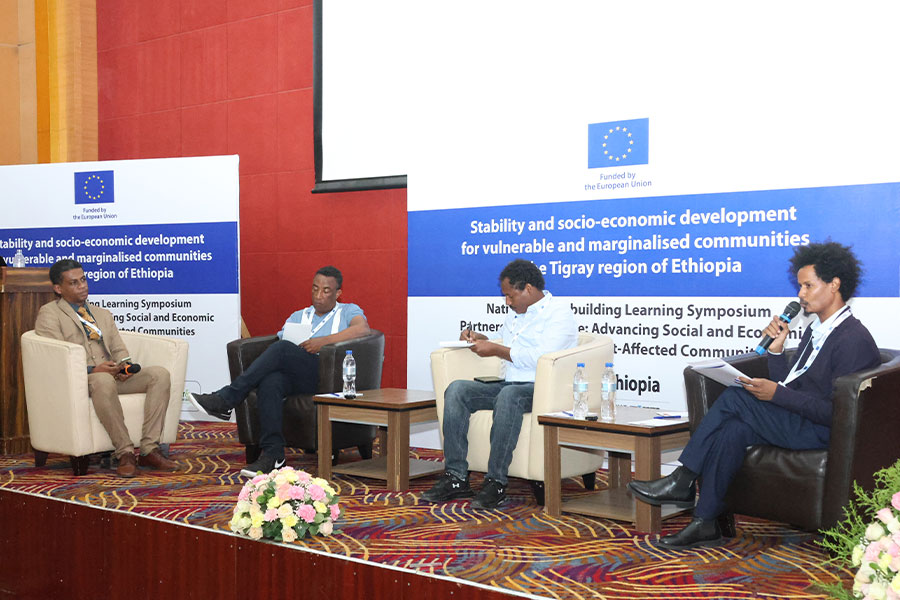
In-Picture | Oct 18,2025
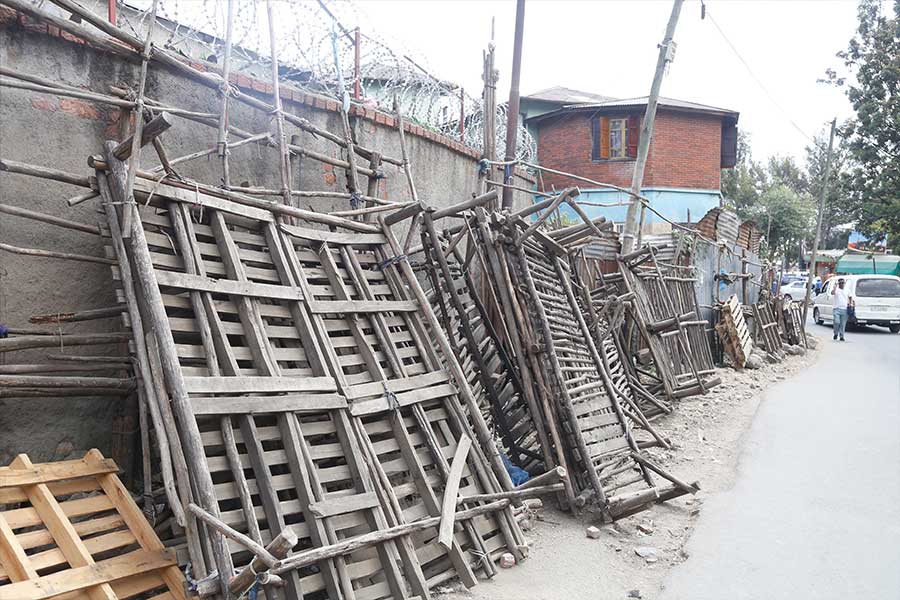
Radar | Nov 14,2020

Sunday with Eden | Jun 11,2022

Radar | Jul 06,2025
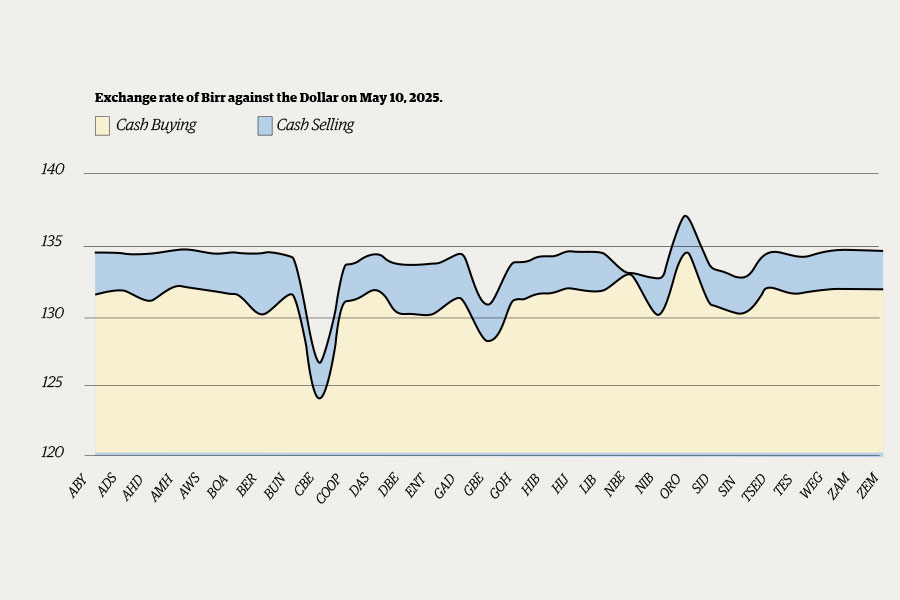
Money Market Watch | May 24,2025
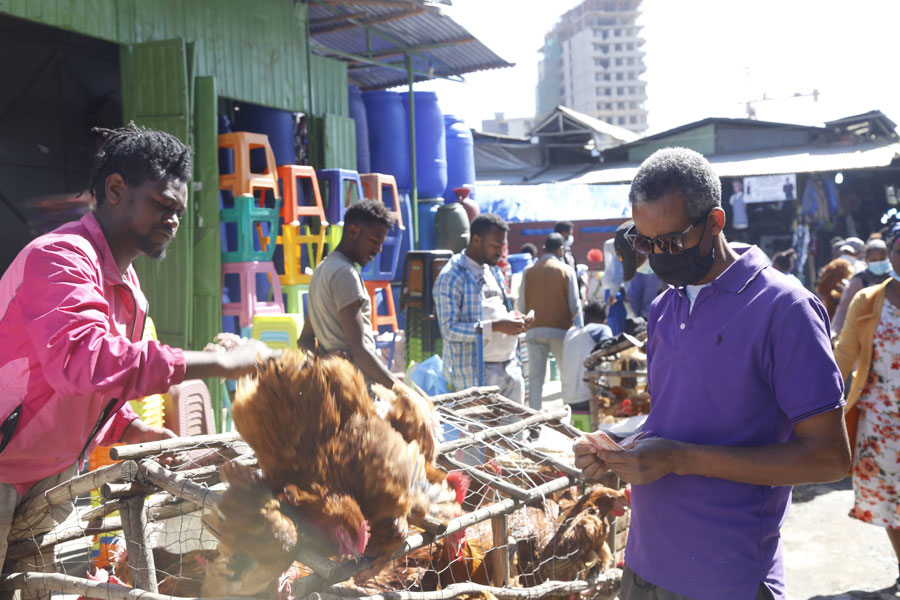
Agenda | Jan 09,2021

Radar | Nov 14,2020
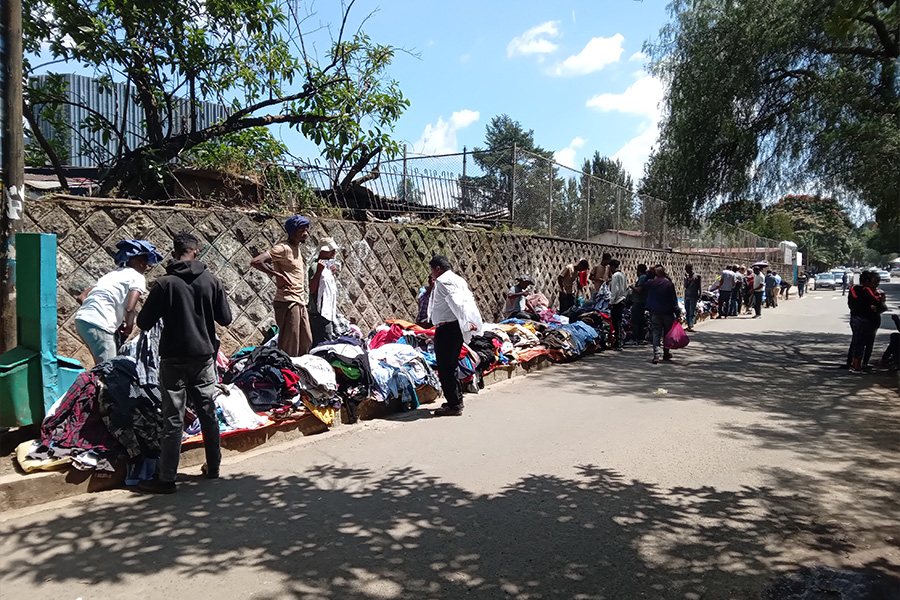
In-Picture | Oct 13,2024

Photo Gallery | 176346 Views | May 06,2019

Photo Gallery | 166561 Views | Apr 26,2019

Photo Gallery | 157053 Views | Oct 06,2021

My Opinion | 136902 Views | Aug 14,2021

Dec 22 , 2024 . By TIZITA SHEWAFERAW
Charged with transforming colossal state-owned enterprises into modern and competitiv...

Aug 18 , 2024 . By AKSAH ITALO
Although predictable Yonas Zerihun's job in the ride-hailing service is not immune to...

Jul 28 , 2024 . By TIZITA SHEWAFERAW
Unhabitual, perhaps too many, Samuel Gebreyohannes, 38, used to occasionally enjoy a couple of beers at breakfast. However, he recently swit...

Jul 13 , 2024 . By AKSAH ITALO
Investors who rely on tractors, trucks, and field vehicles for commuting, transporting commodities, and f...

Oct 18 , 2025
The political establishment, notably the ruling party and its top brass, has become p...

Oct 11 , 2025
Ladislas Farago, a roving Associated Press (AP) correspondent, arrived in Ethiopia in...

Oct 4 , 2025
Eyob Tekalegn (PhD) had been in the Governor's chair for only weeks when, on Septembe...

Sep 27 , 2025
Four years into an experiment with “shock therapy” in education, the national moo...

Oct 18 , 2025 . By NAHOM AYELE
In a sweeping reform that upends nearly a decade of uniform health insurance contribu...

A bill that could transform the nutritional state sits in a limbo, even as the countr...

Oct 18 , 2025 . By SURAFEL MULUGETA
A long-planned directive to curb carbon emissions from fossil-fuel-powered vehicles h...

Oct 18 , 2025 . By BEZAWIT HULUAGER
Transaction advisors working with companies that hold over a quarter of a billion Bir...